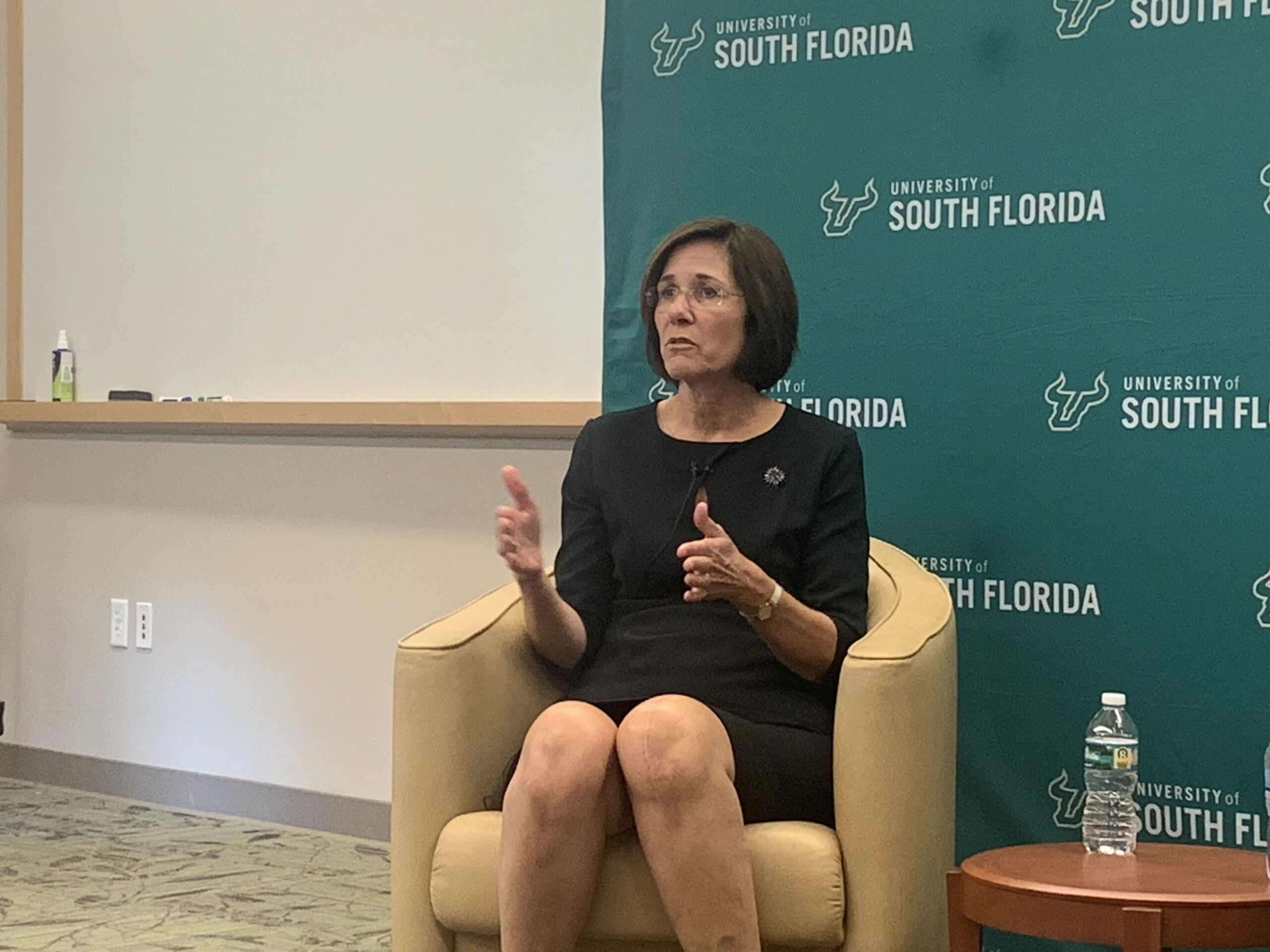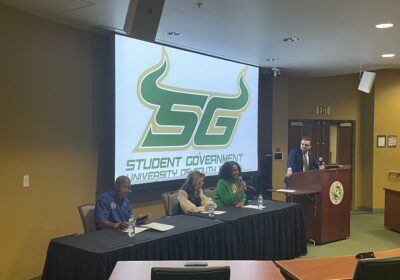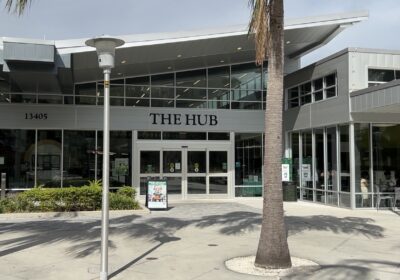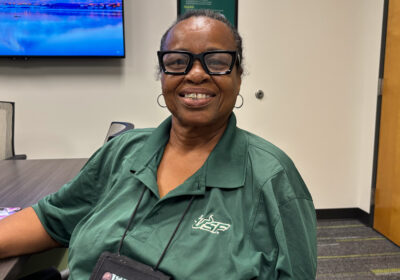Horvat shares visions for USF’s future at provost search town hall

Provost finalist Erin Horvat shared goals during Monday’s town hall meeting at the Tampa campus to propel USF forward, as well as some difficulties she is anticipating with handling three campuses if chosen for the role.
The hourlong event featured the same questions as the previous meetings and had five faculty members in attendance, as well as 90 viewers online.
She is currently working as the senior vice provost of faculty advancement and undergraduate affairs at Drexel University.
Horvat discussed what the role of the provost should be, characterizing it as being the “chief articulator of a shared vision.” One goal in mind for her is creating alignment and communication across the university. She will focus on making herself available to students and faculty to help achieve this.
“You’ve got the other two campuses and even [the Tampa campus] is really big. People are spread out on this big campus,” she said. “So, figuring out how to connect with people, both in person and virtually, I think would be a priority for me.
“It’s really important to me that people know that if they reach out to me either on phone, email or in person, that they will get a reply.”
Horvat also spoke of the importance of faculty in a successful institution. Student success goes hand in hand with faculty success, according to Horvat. However, she said she still doesn’t know how to handle faculty support across all campuses.
“I’m still sorting out how to lead three different campuses that are pretty far apart from one another,” she said. “What that would look like, I’m not sure.”
Discussing the idea of shared governance, an important aspect for this would be communication and relationships, according to Horvat. Convening people with different perspectives and positionalities throughout the university is a way of doing this, she said.
In regard to post-pandemic plans, Horvat shared that the classroom, as well as students, have changed deeply due to COVID-19. She believes the pandemic opened up new possibilities as to what high quality education can look like.
“There’s no definition for [face-to-face classes. At Drexel University], we defined it as 75% of the class is conducted in person. You can have components that are online, that doesn’t necessarily mean an online lecture, it might mean a discussion board,” she said.
“Thinking more creatively and holistically about how we use this genie that’s come out of this box, and how to make the most of it, is really important.”
She also pointed out the importance of educating faculty on mental health as well as providing resources for students in a post-pandemic world. There has been an increased need to think about student wellness and well-being, mainly because they are connected to how students do in the classroom, Horvat said.
“You need to give people the tools that they need in order to manage the situation that they’re in,” she said. “For right now, that includes a lot of students coming back in ways that are a little bit wobbly”
Over the last few years, USF has set a goal for membership in the Association of American Universities. To help USF do this, Horvat said work could be done at the graduate level as well as increasing student success, while simultaneously improving metrics.
After spending a couple of days on campus, Horvat said she felt an alignment between her goals and USF’s.
“There’s just a really good fit between what I care deeply about and what this institution is about,” she said.
“This is a massive place and no one person is going to create the change that needs to be there to take us up to the next level, but I believe that working together, we can achieve great things together.”






